
We’ll tell you what’s racism
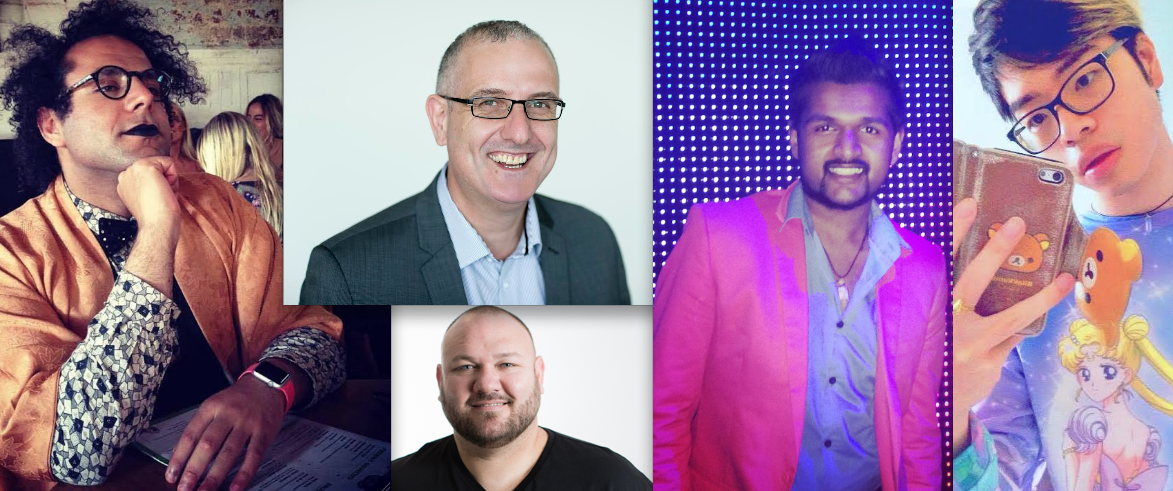
RACISM can be malicious or casual, overt or subtle, but one fact remains universal: the discrimination of people based on race and/or culture permeates almost every sector in society.
Whether it arrives in the form of a racial slur, the fetishisation of someone’s features, or the lack of diversity in Australian media, racism is a systemic form of oppression that works to alienate and marginalise entire communities of people.
For Australian men sitting at the identity intersection of same-sex attracted and culturally and linguistically diverse, racism can add to the homophobia they may already face.
And in many cases, this discrimination can come from within the gay community itself.
AZIZ ABU-BAKR
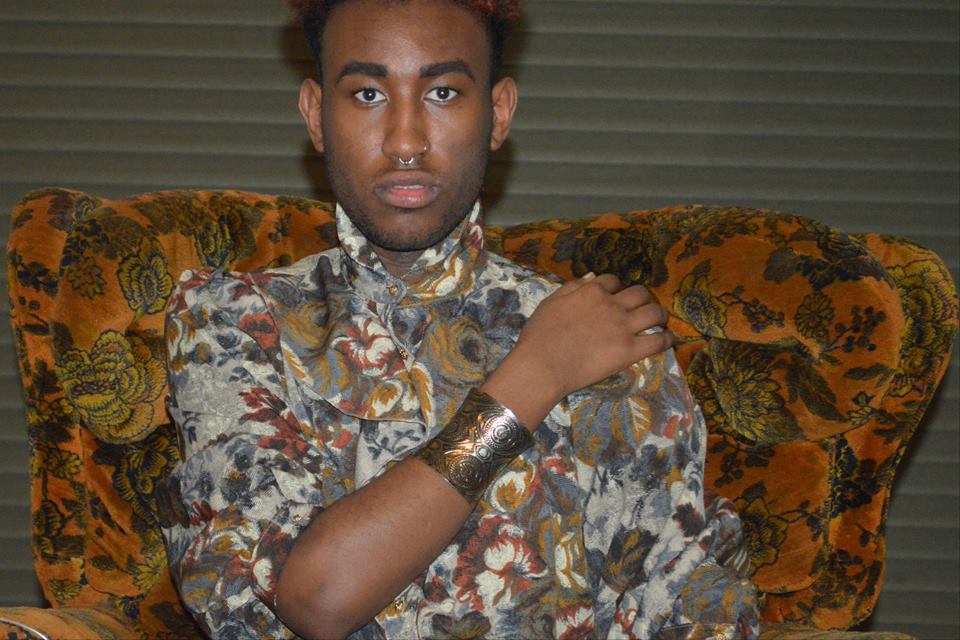
WHEN Aziz Abu-Bakr is out dancing in a club he would often feel a stranger’s hands run through his thick, curly hair — unprompted and without consent.
“They feel they have a right over my body,” he said.
“There’s this twisted idea that I should sort of feel honoured when a white person compliments me – but I’ve never spoken to you in my life, and it’s not like you would touch another random white person’s hair.”
While in person Abu-Bakr’s hair is frequently fetishised by other gay men, online this physical appraisal becomes more problematic.
When members of the white “gaytriarchy” message him — a term he uses to define gay men that are positioned as the standard in Melbourne — stereotypes surrounding the African community run rampant.
“People always ask me if it’s true what they’ve heard about black men and refer to me as things like exotic, words that would be more fitting for an animal than a human being,” he said.
“Weirdly enough they perceive it as complimenting me… they’re like, ‘oh, I’m this white gay man, you should feel blessed that I’m giving you this attention’.
“It takes me back to the days of the slave trade, when people were selling slaves and describing every physical feature they had as being of a ‘good stock’.”
Abu-Bakr believes many gay men defend their casual racism by claiming to understand his experience because of their own marginalised sexual identities.
“Just because you’re gay, doesn’t mean you can share in someone else’s struggle,” he said.
“You don’t know what it feels like because you are still white and you are still a man – privilege, privilege.
“Acknowledging intersectionality is so important, I’ll repeat it until the day I die.”
MUHAMMED TAHA
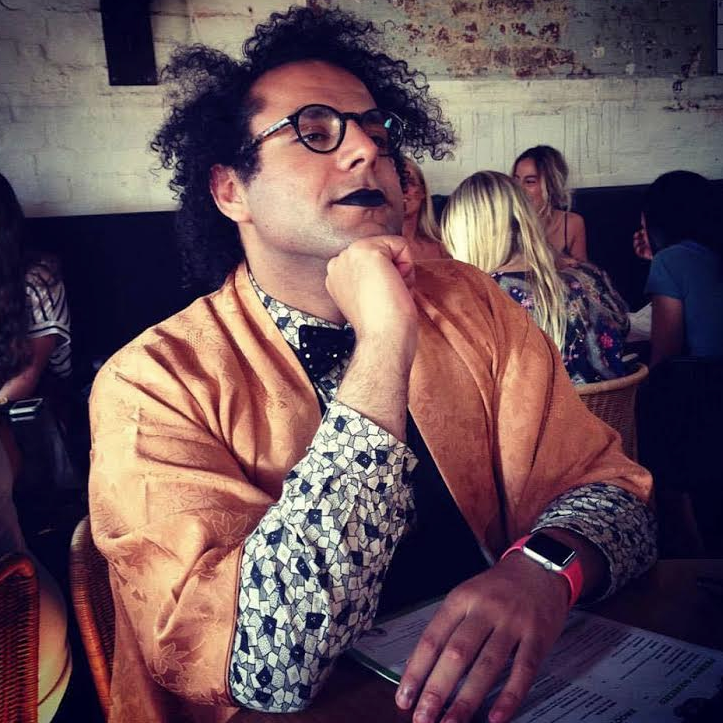
ARRIVING at an event and feeling like a friend’s token person of colour is a familiar experience for Muhammed Taha.
“When you rock up to an event where there are all these rich white gay men, you think someone fucked up for me to be invited to this,” he said.
“When you’re friends with some people, you have to exist in a certain role that’s cast for you — you are proof that they’re not racist.
“Basically you’re viewed as a token or as a cultural asset rather than an actual human person.”
When he has encountered gay white men who almost exclusively surround themselves with other gay white men, Taha believes it’s no coincidence.
“In their minds they see no issue with the fact that there is lit- erally no person of colour in their circles,” he said.
“They think that it just happens, but it doesn’t… the fact that you’re surrounded by one shade of people is not a coincidence.”
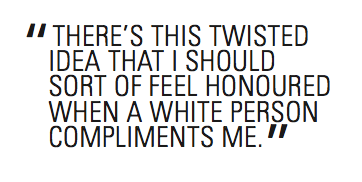
One of Taha’s white friends recently told him that he couldn’t bring his then-boyfriend home with him because he wasn’t white.
“He said he couldn’t introduce his boyfriend to his parents, because his parents had only just accepted the whole gay thing,” he said.
“So often [gay white men] just don’t believe that other people exist, they live in their bubbles where everyone looks like them.”
Taha believes change will happen when gay men start being more open and accepting that discrimination can occur from within marginalised communities.
“It starts with viewing beauty as more than one colour,” he said.
“And don’t assume because you’re gay or queer that you’re above it, because no-one is above a misstep… the shame isn’t in making a racist error, the shame is when someone tells you you’ve trespassed on their rights and you continue to do so.”
DAMEYON BONSON
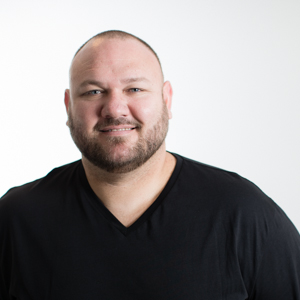
WORKING in suicide prevention for sexual and gender diverse Aboriginal and Torres Strait Islander people, Black Rainbow founder Dameyon Bonson said the racism he has faced has largely been institutional.
While trying to partner Black Rainbow with other organisations, he’s often been knocked back with a tokenistic offer of joining the organisation’s advisory group instead.
“Whiteness can be so blinding to organisations, and when you use the word racism about them they get very defensive about it,” he said.
“If you’re working or developing something based on a community of people, look around the room and make sure you’ve got people that represent members of that community.
“First Australians should be the first you put in.”
Those in Australia’s Indigenous community are among the highest at risk of mental health issues and suicide, and those who sit at the intersection of Indigenous and LGBTI are at an even greater risk.
Bonson said it wasn’t enough to have gay Indigenous people advising groups on issues around LGBTI mental health, suicide, and discrimination — they need to be actively engaging their own community to participate in their own mental health.
“We’re moving beyond diversity now, and we have to focus on inclusion,” he said.
“It’s not about giving organisations the knowledge and arming them to do it themselves, we need to be part of it.
“You need more than an advisory group… there needs to be LGBTI Aboriginal people across all levels of management to be part of the solution for LGBTI Aboriginal health.”
EDISON CHEN
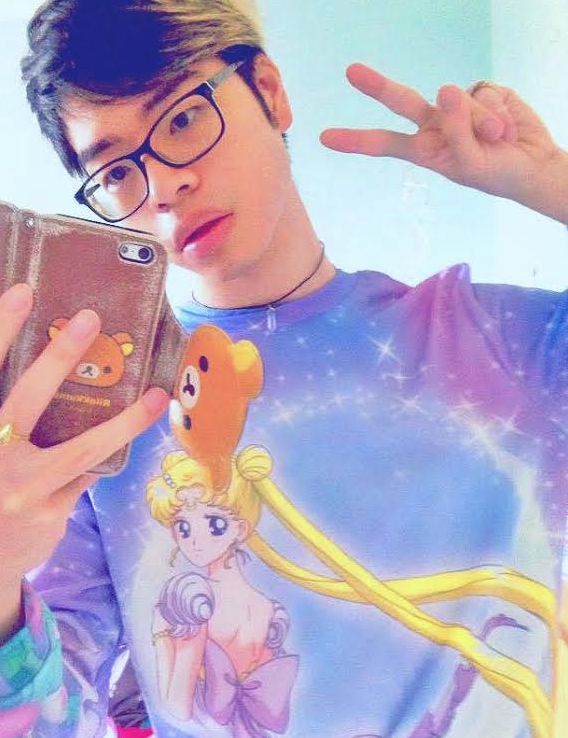
AS a gay Asian man, Edison Chen admits he has been guilty of racism when it comes to his sexual preferences.
With the omnipresence and lauding of white men in media, marketing, and society at large, Chen believes it damagingly contributes to how gay Asian men perceive their own identities.
“Many people think if I can land a white partner, that gives me more beauty commodity as an Asian person, because people will see me in a light where I’m not relegated to a stereotype,” he said.
“I would admit to some racism as a person of colour but I don’t think it’s a gigantic taboo if someone calls you racist based on your sexual preferences… I do feel guilty because I do find a lot more white people attractive than people of my own race.
“The first step is to admit yes, I have these preferences and yes, it may have racist roots and mentalities.”
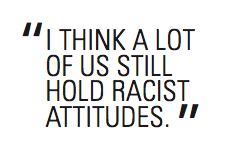
Chen believes it would be far more constructive if gay men questioned their racial preferences between the sheets and started to challenge them.
“w and it should be okay to admit that, myself guiltily included,” he said.
“But for gay Asian people, whenever someone’s not interested there’s a small thought that maybe this is because of my skin colour and you start having negative feelings about yourself.
“Is this person only interested in me or not even looking at me because of my race?”
Chen added that if gay men reflected on their perhaps skewed sexual preferences, it could be beneficial for those who were marginalised.
“What’d be useful is for people to reflect and think: ‘hey, maybe I am a little racist and it’s not very nice that some people are made to feel ugly’,” he said.
TONY ROMANELLI
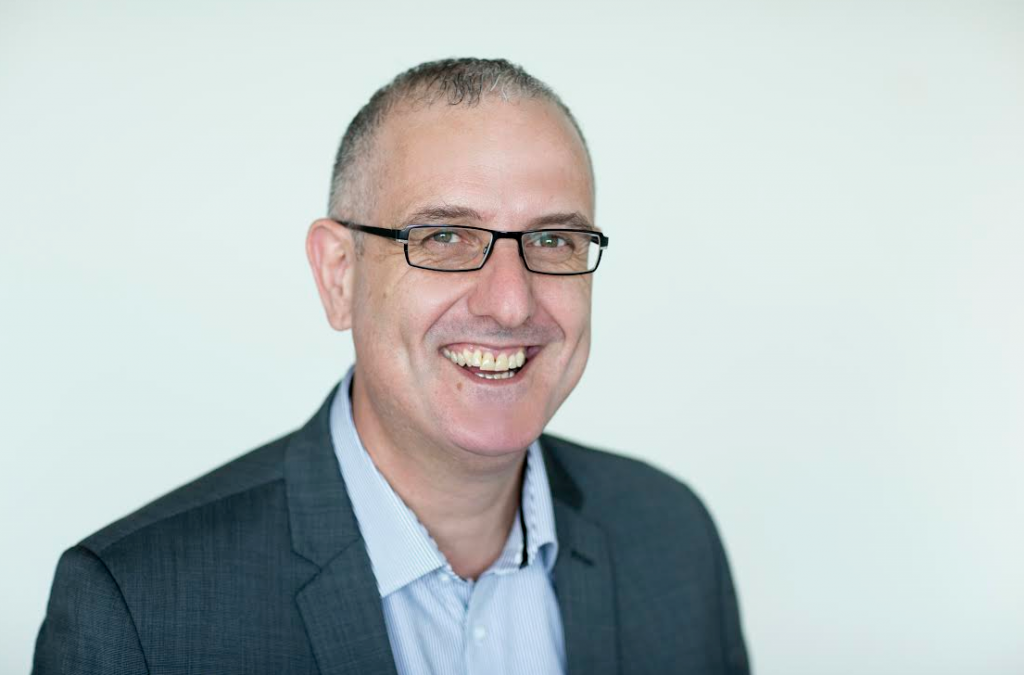
WHEN Tony Romanelli first came out he wanted to distance himself from his Italian background.
“I de-identified myself as being Italian because I felt this pressure that if I was to be a part of the gay community the only way I would be accepted would be to become Anglofied,” he recalled.
So I pushed that ethnic side of me away and wouldn’t identify with it.
“I’m obviously a lot more comfortable in my own skin now and I’ve started to embrace my ethnic identity again, I’m really proud of it.”
When he boiled it down, Romanelli said he initially did this because of the lack of Italian representation among the gay community at the time.
And while he said the racism he experienced was a lot more blatant 20 to 30 years ago, he described modern day racism as manifesting in more subtle ways.
“In terms of media, people from diverse ethnic backgrounds aren’t featured in things like television and magazines, and because this isn’t an obvious form of racism people don’t take it on board unless it’s affecting them,” he said.
“Racism is entrenched and we don’t even realise it’s going on… it’s like internalised homophobia, you don’t realise you’re doing it until you sit down and start thinking about it.”
Romanelli said there needed to be more education and awareness around the racism that exists in the community.
“There needs to be an educative process, and the media need to make a conscious effort to represent diversity,” he said.
“When I flick through social pages, there’s a huge disparity between the number of white people compared to the number of people from an ethnic background.
“We need to break down the suspicion people have of those who are different from them.”
SENTHORUN RAJ
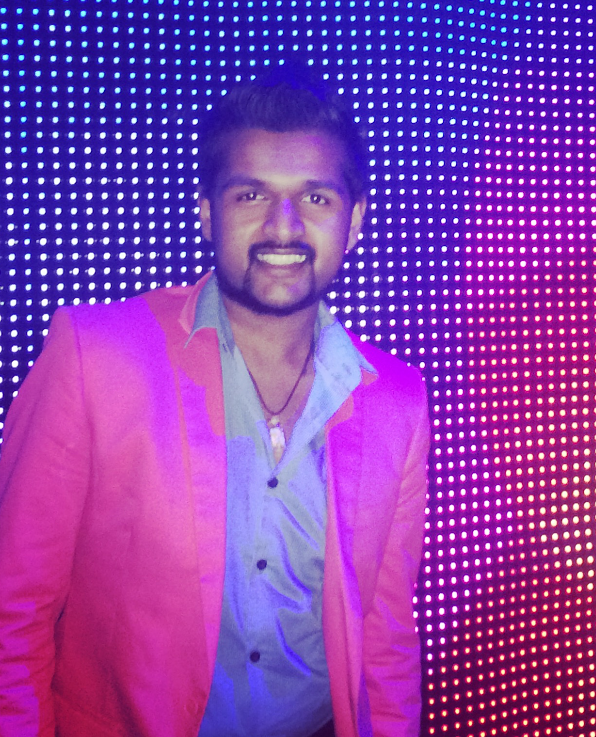
IT grates on Senthorun Raj when he opens Grindr to find a man asking him where he’s from in an interrogative tone.
“When I’ve had a lot of people ask about my nationality, I respond that I’m Australian, because I’m an Australian citizen,” he said.
“Then they follow up with where are you really from — the ‘really’ is emphasised — and the point they’re getting at is, because I’m not white and don’t have a cultural genealogy that fits inside the Anglo-Saxon idea of what it means to be Australian, I must be from somewhere else.
“People think these questions are ways of opening a conversation, but for those of us who are constantly reminded that we’re not really Australian, they reinforce our differences in a subordinating way.”
Raj believes it’s utopic to think that marginalised people aren’t capable of discriminating against other marginalised people.
“That’s overstated, because it fails to realise that experiences of discrimination are both disparate and multi-dimensional,” he said.
“Take asylum seekers and refugees for example — the way they experience sexuality discrimination is affected by their racial and cultural positioning as well.
“In a lot of debates about asylum seekers there has been a strong anti-Muslim rhetoric, not only from politicians but from the gay community as well.
“If you identify as Muslim and queer and a refugee, constantly being harangued about how homophobic your family or religion is can be another traumatising experience.”
Raj said in a lot of public conversations it’s seen as more worrying to be called racist than to experience racism.
“It brings the individual feelings of the person being called racist to the forefront while diminishing the voice of those who experience racism,” he said.
“We need to stop being affronted by having racism pointed out to us, and listen more attentively to those who experience it.”
__________________________________
**This article was first published in the April edition of the Star Observer, which is available now. Click here to find out where you can grab a copy in Melbourne, Sydney, Brisbane, Adelaide, Canberra and select regional/coastal areas.
Read the April edition of the Star Observer in digital format:
__________________________________




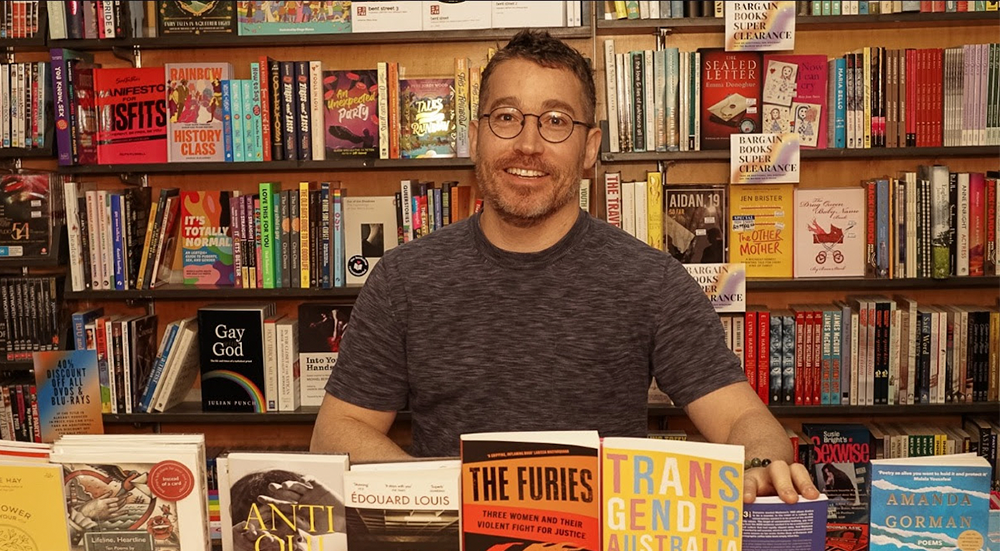

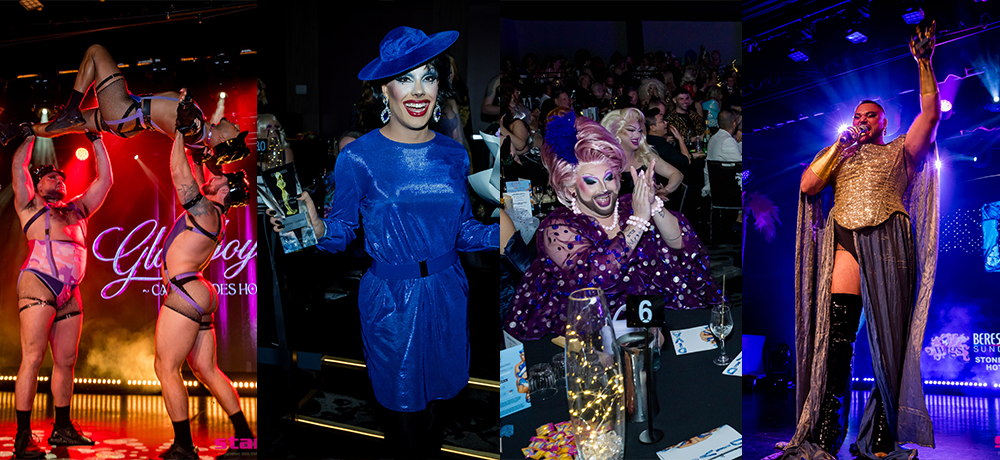

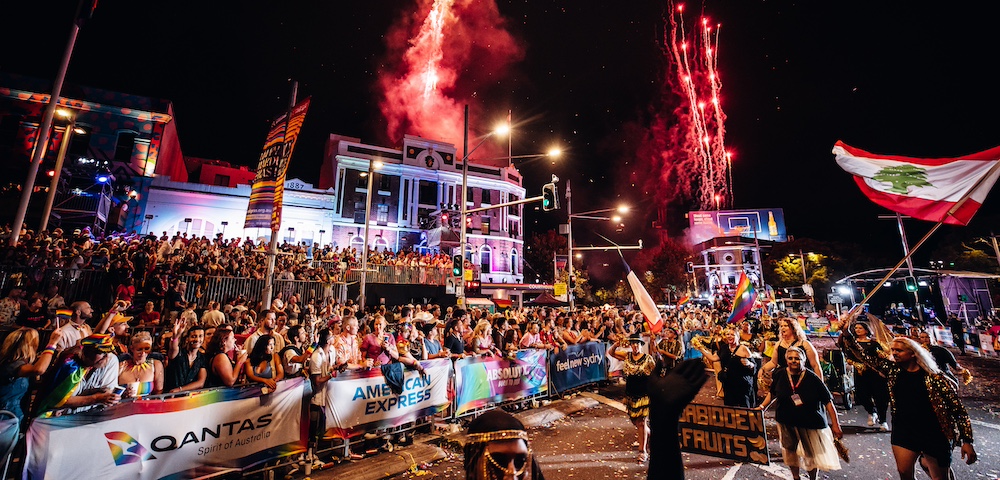

I get the impression that people find it offensive, racist or downright insulting when someone, quite naturally, asks another person what their ethnic background is.
Why is this? If someone is interested or just wants to be friendly in another person why is it offensive to, politely, want to find out as much about that person as possible?
As a pink-skinned, once blonde, Celtic, Irish-born, black-hearted atheist who just happens to speak with no discernible accent, other than to be simply told “You are, of course English” I simply don’t care if people are interested enough in me to ask me questions about my background.
Even after 60 years in Australia I still get asked “Where are you from?”
I actually welcome that question because it tells me that I am thought to be different to other pink-skinned people.
During our time “In the Life”, we are now largely shunned by our fellow LGBTIQ community members simply because of our age, we had friends of practically every race, colour etc. Unfortunately thanks to the Vile Virus – most are now dead BUT we stuck together until the very end. Race etc. was never an issue. We called each other the most appalling names and no-one took offence. Maybe that was wrong – certainly in today’s Politically Correct world it is BUT maybe it is time everyone simply lightened up and got a sense of humour?
On TripleJ this morning there was a song by an African-American singer. he referred to members of his own race as “Niggas” and White people as “Whiteys”. No-one rang through to complain.
LGBTI people are in every profession, continent, country, race, colour, culture, political or religious affiliation and society. Bigots, homophobes and conservative asshole cunts need to pull their head out of the fucking sand and accept reality!
This is exactly what I’m interested in in lGBT activism, We need to put more priority on people of marginalized races with in our community, more priority on African and Middle-Eastern countries with higher discrimination like Saudi-Arabian and Uganda, and to be able to criticize ourselves. We have to get better, because we’ll never be perfect.
Rah, rah, fight the powah. :)